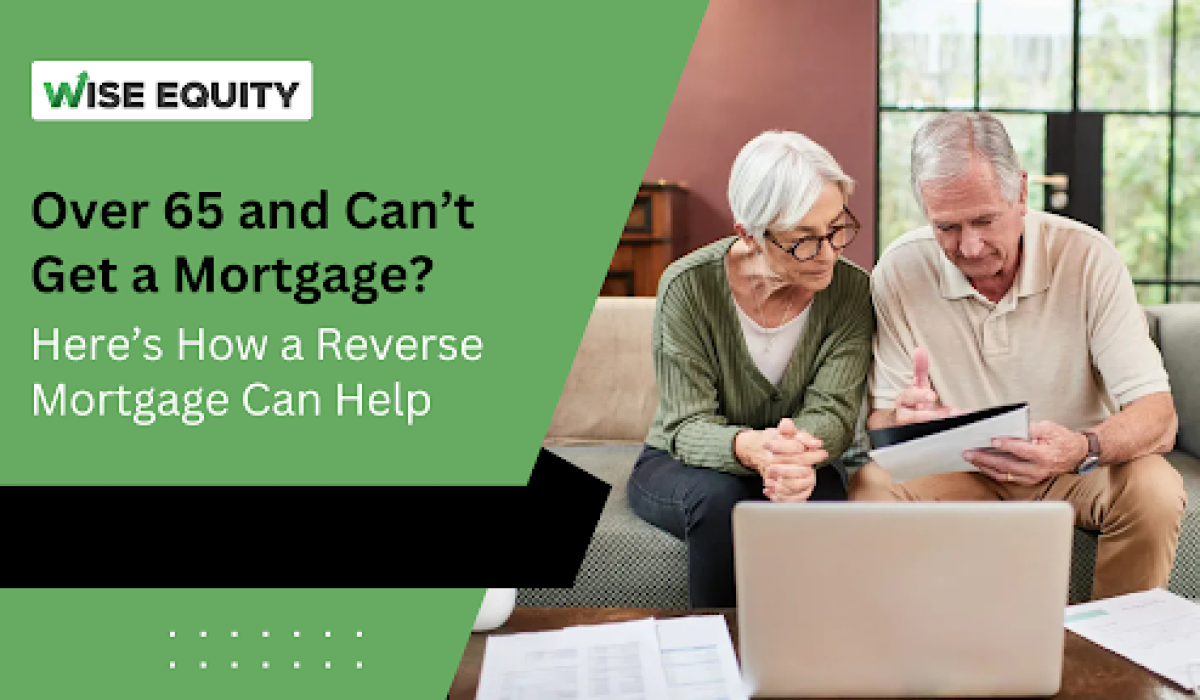Getting approved for a traditional mortgage after 65 can be challenging. Many Canadian lenders view retirees as higher-risk borrowers, especially if their income comes primarily from pensions or savings. But being turned down for a mortgage doesn’t mean you’re out of options.
One financial tool worth considering is a Reverse Mortgage. Designed specifically for homeowners aged 55 and over, it allows you to tap into your home equity without selling or making monthly payments. In this guide, we’ll explore why traditional mortgages are harder to get after retirement, how reverse mortgages work, and whether they might be the right fit for you.
Why It’s Harder to Get a Mortgage After 65
Even if you own a valuable property, traditional mortgage approval often depends heavily on income stability. Once you retire, your income may decrease, making it harder to meet a bank’s debt-to-income ratio requirements. Other challenges include:
- Strict Lending Criteria: Banks often want proof that you can make payments for the full term.
- Shorter Approval Terms: Lenders may only offer shorter amortization periods, increasing monthly costs.
- Age Considerations: While age discrimination is illegal, risk assessment models sometimes work against older applicants.
The result? Many financially stable retirees still face rejection for conventional loans—especially if they rely on fixed retirement income.
What Is a Reverse Mortgage?
A Reverse Mortgage is a loan that lets you access up to 55% of your home’s value, tax-free, without having to move or make monthly mortgage payments. Instead of paying the lender each month, the interest accumulates over time and is paid when you sell your home, move out permanently, or pass away.
Here’s how it works:
- You must be 55 or older and own your home.
- The home remains in your name.
- You receive funds either as a lump sum, monthly payments, or a line of credit.
- You only repay when the loan term ends.
This flexibility makes reverse mortgages a popular choice for retirees who are “house rich but cash poor.”

Why a Reverse Mortgage Might Be the Right Solution
If you’re over 65 and can’t get a mortgage, a reverse mortgage offers several advantages:
- No Monthly Payments: Unlike a traditional mortgage, there are no ongoing payments to worry about.
- Flexible Access to Funds: Choose a lump sum for big expenses or smaller payments to supplement your income.
- Stay in Your Home: You maintain full ownership and can continue living there for as long as you wish.
- Tax-Free Money: The funds you receive are not considered taxable income.
- No Negative Equity Guarantee: In Canada, you will never owe more than the home’s value at the time of sale.
These benefits can ease financial stress, especially if you’re living on a fixed income.
When a Reverse Mortgage Might Not Be Ideal
While a reverse mortgage can be a great tool, it’s not right for everyone. Here are some things to consider:
- Interest Accumulates: Since you’re not making payments, the amount you owe grows over time.
- Reduced Inheritance: Your heirs will inherit less equity from the home.
- Fees and Costs: Setup, legal, and appraisal fees can add up.
It’s important to weigh these factors before committing. Advisors like Wise Equity can provide clear, personalized projections so you understand exactly how the loan will affect your long-term finances.

How to Qualify for a Reverse Mortgage
Qualifying is generally easier than for a traditional mortgage. Lenders focus on:
- Your age (55+)
- Your home’s location and value
- The type of property you own
- How much of your mortgage, if any, is left to pay
Since your income plays less of a role, retirees often find this option much more accessible.
Alternatives to Reverse Mortgages
Before deciding, consider other financing options:
- Home Equity Line of Credit (HELOC): Good for short-term borrowing but requires monthly payments.
- Downsizing: Selling your current home to buy a smaller, more affordable one.
- Personal Loans: Suitable for smaller amounts but with higher interest rates.
However, if maintaining your lifestyle in your current home is your priority, a reverse mortgage may be the most suitable choice.
Making the Right Decision
Choosing a reverse mortgage should involve careful planning. Here’s how to make the process smoother:
- Get Professional Advice: Consult with reverse mortgage specialists like Wise Equity.
- Review All Terms: Understand the repayment triggers and interest rates.
- Involve Your Family: Transparency helps avoid future misunderstandings.
- Get Legal Counsel: Independent legal advice is required and ensures you understand the agreement fully.
By taking these steps, you can feel confident that your decision is well-informed.
Conclusion
If you’re over 65 and can’t get a mortgage, you’re not out of options. A Reverse Mortgage can help you unlock your home’s equity, enjoy your retirement, and maintain your lifestyle without the stress of monthly payments.
While it’s not the perfect fit for everyone, it’s a valuable financial tool for many Canadian seniors. By working with experienced advisors like Wise Equity, you can explore your options, avoid common pitfalls, and make a choice that supports your retirement goals.

